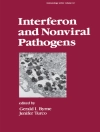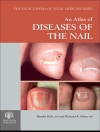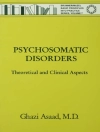Over the past decade, significant progress has been made in the theory and applications of pharmacodynamics of antimicrobial agents. On the basis of pharmacokinetic-pharmacodynamic modeling concepts it has become possible to describe and predict the time course of antimicrobial effects under normal and pathophysiological conditions. The study of pharmacokinetic-pharmacodynamic relationships can be of considerable value in understanding drug action, defining optimal dosing regimens, and in making predictions under new or changing pre-clinical and clinical circumstances. Not surprisingly, pharmacokinetic-pharmacodynamic modeling concepts are increasingly applied in both basic and clinical research as well as in drug development.
The book will be designed as a reference on the application of pharmacokinetic-pharmacodynamic principles for the optimization of antimicrobial therapy, namely pharmacotherapy, and infectious diseases. The reader will be introduced to various aspects of the fundamentals of antimicrobial pharmacodynamics, the integration of pharmacokinetics with pharmacodynamics for all major classes of antibiotics, and the translation of in vitro and animal model data to basic research and clinical situations in humans.
Daftar Isi
Foreword.- Section I: Basic Concepts and Principles.- Introduction to Pharmacodynamics and micrbiology.- In vitro and animal PK/PD model.- MIC and breakpoints.- Principles of applied PK/PD modeling.- Population Pk/PD modeling and its applications to antimicrobials.- Drug resistance and Drug-drug combinations.- Section II: Clinical.- Aminoglycosides.- Beta-lactam antibiotics including continuous infusion.- Macrolides.- Glycopeptides.- Quinolones.- Other.-












